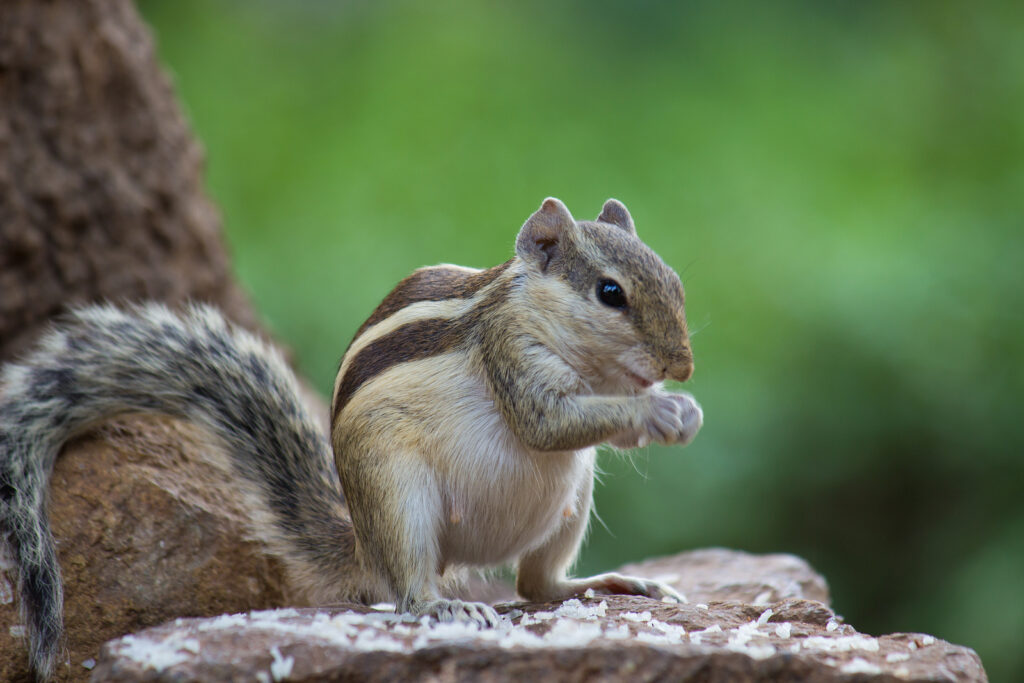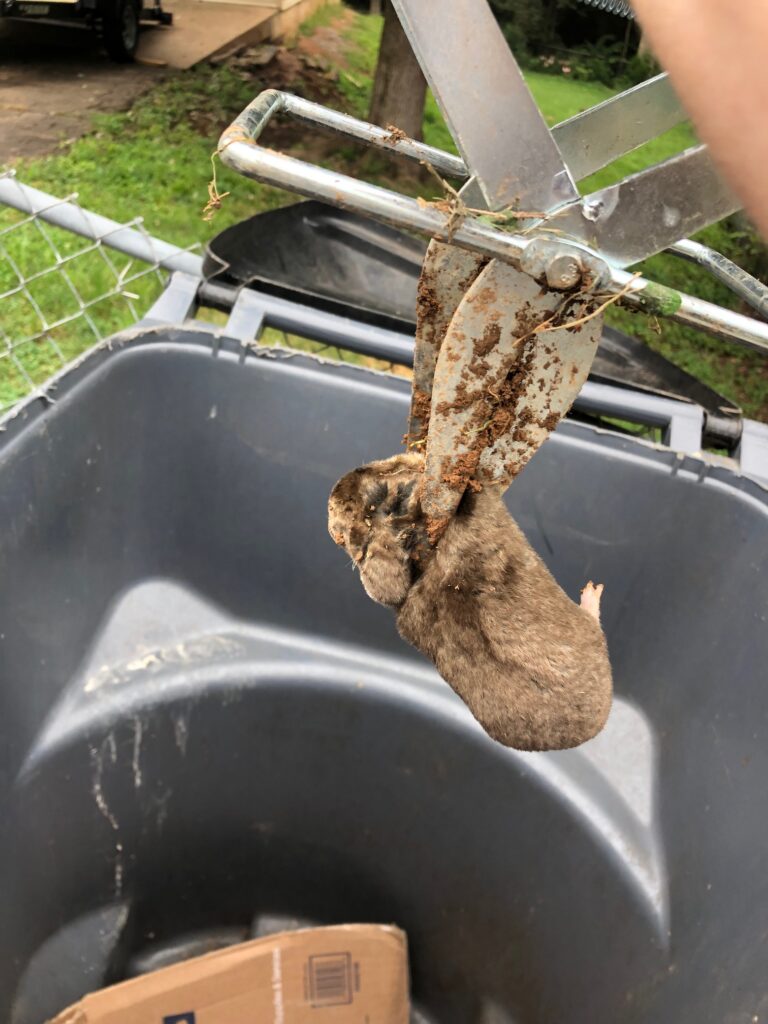Chipmunks are certainly cute and funny, but they have a lot more to offer! Learning all about chipmunks is fun because it gives you a greater appreciation for them, plus helps you understand their behaviors. As for property owners and residents, knowing more about chipmunks can give you an advantage when typing to stop them from pillaging your gardens and flowerbeds!
Continue below to review some of the most enlightening, educational facts about chipmunks, and where to get humane critter control assistance for chipmunks in Nashville, Tennessee, and its surrounding counties.

Chipmunks Come With a Warning Attached
Although you may have already gathered the fact from Alvin, Simon, and Theodore, chipmunks are really cool critters! Adorned with racecar-like stripes, bushy tails, and chubby cheeks, chipmunks are one of the most beloved animals among nature lovers. They are fast, curious, and mission-oriented, making them an entertaining species all year long.
Now, unlike the stars on the big screen, real-life chipmunks should only be admired from a distance. If they get too close, they can become a threat to your lawn, garden, flowerbeds, and even your house. They can’t help themselves, it’s just in their nature! But with smart and humane abatement strategies, you can protect your property from nuisance wildlife tampering, while also enjoying the presence of your neighborhood chipmunks, year-round.
What You Want to Know About Chipmunks
🐿 What They Are
Chipmunks are not squirrels, but they are part of the same family, known as Sciuridae. In fact, the word chipmunk is derived from the native Odawa word, “jidmoonh”, meaning red squirrel. Both chipmunks and squirrels are rodents, as they are part of the Rodentia Order. Here is the full scientific classification breakdown:
↣ Kingdom: Animalia
↣ Phylum: Chordata
↣ Class: Mammalia
↣ Order: Rodentia
↣ Family: Sciuridae
↣ Subfamily: Xerinae
There are more than 25 species of chipmunks worldwide, but only one species does not exist in North America. That is the Siberian Chipmunk.
🐿 What They Do
Chipmunks build underground burrows that can be quite extensive. There, they hoard all of their seasonal findings. They hibernate in the winter, relying on their hoards when food is scare and the climate is cold.
Although they do not break into song like their famous counterparts, they do make some pretty cute sounds. Chipmunks squeak, chirp, and chitter-chatter to one another, communicating about possible threat and predators.
Chipmunks are solitary animals as adults. They traverse alone and do not bother one another when they are out of their burrows. However, chipmunks interact with one another during mating season. Come early April, chipmunks are ready to reproduce.
Chipmunk gestation is an average of 30 days, so babes are typically born between May and June. Mothers birth between 2 and 6 babies between May and June but can deliver up to 8! Baby chipmunks are called pups, kittens, or kits, and they rely on mother’s milk for the first 60 days of their lives! Although chipmunks usually only birth one litter, they will deliver a second if the first is lost.
🐿 What They Eat
Chipmunks are omnivores, which means they eat both plants and meat. The most common elements of their diet include nuts like hazelnuts and acorns, as well as grass, shoots, and general plant matter. Sometimes, chipmunks are known to eat worms, small frogs, bird eggs, and in rare cases, a baby bird.
Chipmunks have roomy cheek pouches that are similar to a hamster. These special cheek pouches let chipmunks stuff their mouths full of delicious findings and carry them back to their burrows for safe-keeping.
Do you have a nuisance chipmunk problem on your property? Contact Smoky Wildlife Control at 615-610-0962 for prompt and professional chipmunk removal and control in Nashville, Tennessee. We serve both residential and commercial clients.
Related Posts:
How to Keep Chipmunks Out of the Garden
Why You Should Not Feed the Wild Animals Around Your House
How to Stop Squirrels From Emptying Your Bird Feeders

